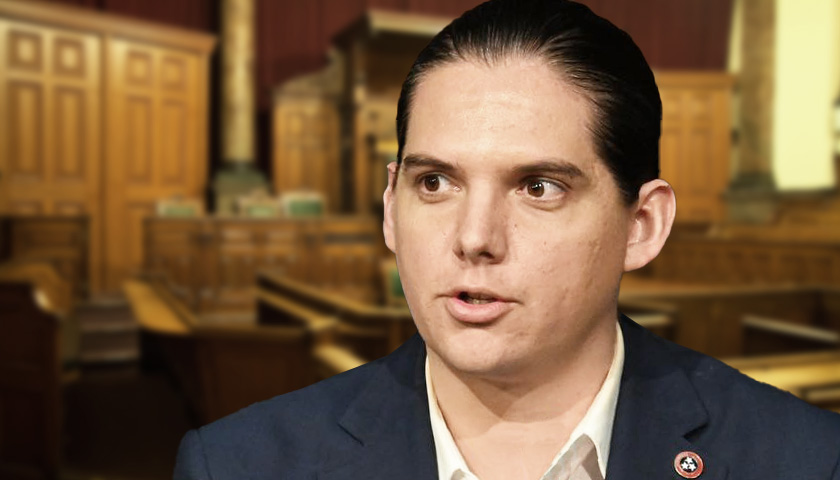Robby Starbuck’s legal team filed its response as ordered by the Court of Appeals of Tennessee at Nashville.
Starbuck’s team was required to file the response to the Tennessee Republican Party’s appeal of the ruling by Chancery Court Judge Russell Perkins ordering the disqualified candidate to be included on Tennessee’s Fifth Congressional District ballot, imposing a deadline of 4 p.m. on Tuesday.
The brief says in part:
Does the Republican Party have to follow the law? That is the fundamental question in this case. Under the plain and unambiguous terms of Tennessee’s Elections Code (Title 2 of the Tennessee Code Annotated) and the Tennessee Open Meetings Act (“TOMA”), when the Tennessee Republican Party’s state executive committee exercises the statutory powers granted to it under Title 2—as Defendants (collectively, “the Party”) admit happened here—it is subject to TOMA and must act in the public eye. The Chancery Court ruled that the statute means what it says and granted Plaintiff Robby Starbuck’s motion for a temporary injunction because actions taken at meetings in violation of TOMA are void and of no effect.
The filing argues elsewhere:
The Party contends that the state executive committee, not the primary board, took the relevant actions under Title 2. But Title 2 says that the state executive committee “shall be the state primary board” and that it is the primary board that “perform[s] the duties and exercises the powers” required by Title 2, including the very power under Title 2 concededly relied upon to remove Mr. Starbuck from the ballot. Tenn. Code Ann. § 2-13-102.
Tenn. Code Ann. § 2-13-102 says:
(a) Each political party shall have a state executive committee which shall be the state primary board for the party.
(b) The state primary board shall perform the duties and exercise the powers required by this title for its party.
(c) The state primary board of each statewide political party created by this section is the immediate successor to the state board of primary election commissioners of each party. Wherever in the Tennessee Code the state board of primary election commissioners of a political party is referred to, “state primary board” shall be substituted.
Starbuck’s team makes the argument that because the words “state primary board” are in the code in that section, that the Tennessee Republican Party State Executive Committee must be a state agency and subject to the Tennessee Open Meetings Act.
The brief, like the judge did, incorrectly stated that there was a secret meeting on April 11, when no such meeting took place.
Between March 22, 2022, and April 11, 2022, Mr. Starbuck provided additional vouching letters and information to the Party to establish that he is a bona fide Republican under the Party’s bylaws. App. at 23. Nevertheless, on April 11, 2022, a sub-set of the state executive committee held a non-public meeting and decided that Mr. Starbuck is not a bona fide Republican. App. at 3, 23-24, 154-55.
The brief also incorrectly states at one point that “The state executive committee’s removal of three candidates from the primary race for an open Congressional seat during a secret meeting is an unprecedented action in Tennessee’s history.”
Starbuck’s team claimed that the application for a stay of the Chancery Court judge’s ruling should be denied because “[t]he Party has not made a strong showing that it is likely to succeed on appeal,” and “[t]he trial court correctly ruled that the Party violated TOMA.”
[wonderplugin_pdf src=”https://tennesseestar.com/wp-content/uploads/2022/06/1121409.pdf” width=”650″ height=”866px” style=”border:0;”]
– – –
Aaron Gulbransen is a reporter at The Tennessee Star and The Star News Network. Email tips to [email protected]. Follow Aaron on GETTR, Twitter, and Parler.
Photo “Robby Starbuck” by Robby Starbuck. Background Photo “Courtroom” by Fayerollinson. CC BY-SA 3.0.





